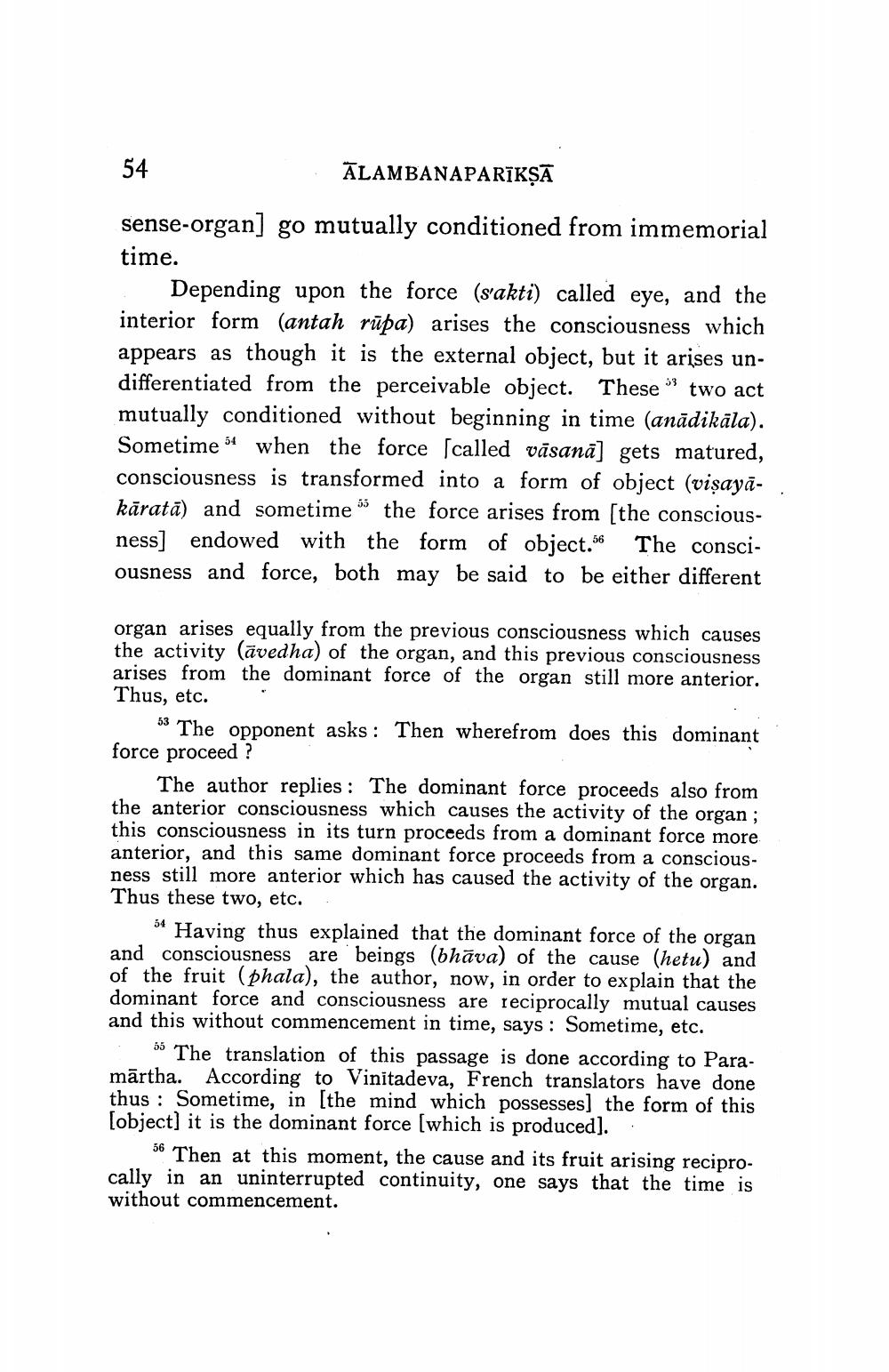________________
54
ĀLAMBANAPARĪKSĀ
sense-organ] go mutually conditioned from immemorial time.
Depending upon the force (sakti) called eye, and the interior form (antah rūpa) arises the consciousness which appears as though it is the external object, but it arises undifferentiated from the perceivable object. These “ two act mutually conditioned without beginning in time (anādikāla). Sometime when the force scalled vāsanā] gets matured, consciousness is transformed into a form of object (viṣayākāratā) and sometimes the force arises from the consciousness] endowed with the form of object. The consciousness and force, both may be said to be either different
organ arises equally from the previous consciousness which causes the activity (āvedha) of the organ, and this previous consciousness arises from the dominant force of the organ still more anterior. Thus, etc.
3 The opponent asks: Then wherefrom does this dominant force proceed ?
The author replies: The dominant force proceeds also from the anterior consciousness which causes the activity of the organ; this consciousness in its turn proceeds from a dominant force more anterior, and this same dominant force proceeds from a consciousness still more anterior which has caused the activity of the organ. Thus these two, etc..
54 Having thus explained that the dominant force of the organ and consciousness are beings (bhāva) of the cause (hetu) and of the fruit (phala), the author, now, in order to explain that the dominant force and consciousness are reciprocally mutual causes and this without commencement in time, says : Sometime, etc.
55 The translation of this passage is done according to Paramārtha. According to Vinitadeva, French translators have done thus : Sometime, in [the mind which possesses] the form of this [object) it is the dominant force (which is produced).
56 Then at this moment, the cause and its fruit arising reciprocally in an uninterrupted continuity, one says that the time is without commencement.




